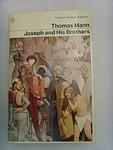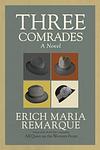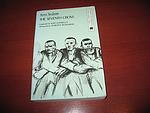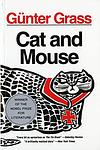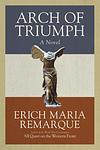The Greatest Indian, German "Fiction, Historical fiction" Books Since 1910
Click to learn how this list is calculated.
This list represents a comprehensive and trusted collection of the greatest books. Developed through a specialized algorithm, it brings together 305 'best of' book lists to form a definitive guide to the world's most acclaimed books. For those interested in how these books are chosen, additional details can be found on the rankings page.
Genres
Historical fiction is a genre of literature that combines fictional stories with real historical events, settings, and characters. These books often take place in a specific time period and are based on research and factual information, but also include imaginative elements to create a compelling narrative. Historical fiction allows readers to experience the past in a unique and engaging way, while also providing insight into the social, cultural, and political issues of the time.
Countries
Date Range
Reading Statistics
Click the button below to see how many of these books you've read!
Download
If you're interested in downloading this list as a CSV file for use in a spreadsheet application, you can easily do so by clicking the button below. Please note that to ensure a manageable file size and faster download, the CSV will include details for only the first 500 books.
Download-
1. Midnight's Children by Salman Rushdie
The novel tells the story of Saleem Sinai, who was born at the exact moment when India gained its independence. As a result, he shares a mystical connection with other children born at the same time, all of whom possess unique, magical abilities. As Saleem grows up, his life mirrors the political and cultural changes happening in his country, from the partition of India and Pakistan, to the Bangladesh War of Independence. The story is a blend of historical fiction and magical realism, exploring themes of identity, fate, and the power of storytelling.
The 38th Greatest Book of All Time -
2. The Magic Mountain by Thomas Mann
In this novel, the protagonist, a young, ordinary man, visits his cousin at a tuberculosis sanatorium in the Swiss Alps. Intending to stay for only a few weeks, he ends up remaining there for seven years, becoming a patient himself. The book explores his experiences and relationships with other patients and staff, delving into philosophical discussions on life, time, and the nature of disease. It also provides a vivid portrayal of the European society and intellectual life on the eve of World War I.
The 43rd Greatest Book of All Time -
3. The Tin Drum by Günter Grass
The novel tells the story of Oskar Matzerath, a boy who decides on his third birthday that he will stop growing and remain a three-year-old forever. Oskar is gifted with a tin drum by his mother, which he uses to express his emotions and thoughts. Living in Danzig during the rise of Nazi Germany, Oskar's refusal to grow is a form of protest against the adult world. The book is a blend of magical realism and historical fiction, providing a unique perspective on the horrors of World War II and the post-war era in Germany.
The 93rd Greatest Book of All Time -
4. All Quiet on the Western Front by Erich Maria Remarque
The novel tells the story of a young German soldier, Paul Bäumer, and his experiences during World War I. The narrative explores the physical and emotional toll of war, the camaraderie between soldiers, and the disillusionment of a generation thrown into a brutal conflict. The protagonist and his friends grapple with survival, fear, and the loss of innocence, providing a stark and poignant critique of the futility and destructiveness of war.
The 100th Greatest Book of All Time -
5. Doctor Faustus by Thomas Mann
The novel is a reimagining of the Faust legend set in the context of the first half of the 20th century and the turmoil of Germany in that period. It tells the story of a composer who makes a pact with the devil, exchanging his soul for unlimited creative genius. The protagonist's life and work reflect the cultural and political journey of Germany leading up to World War II, providing a deep exploration of the individual's role in a society undergoing dramatic change. The novel is also a profound meditation on the nature of time, the art and the artist, and the destructiveness of human ambition.
The 153rd Greatest Book of All Time -
6. A Suitable Boy by Vikram Seth
Set in 1950s India, this epic novel follows the story of four families over a period of 18 months, focusing primarily on the young woman Lata and her mother's quest to find her a suitable husband. The narrative explores the political, social, and personal upheavals in a newly independent India, struggling with its own identity amidst the backdrop of a society grappling with religious tensions, land reforms, and the shaping of a modern democratic state. Lata's journey is an exploration of love, ambition, and the weight of familial duty.
The 345th Greatest Book of All Time -
7. A Fine Balance by Rohinton Mistry
"A Fine Balance" is a poignant narrative set in India during the 1970s, a time of political turmoil and upheaval. The plot revolves around four diverse characters - a widow, a young student, and two tailors - who are brought together by fate. Through their interconnected lives, the book explores themes of caste, poverty, political corruption, and the human spirit's resilience. It offers a profound exploration of the delicate balance that sustains life amidst adversity.
The 384th Greatest Book of All Time -
8. Joseph and His Brothers by Thomas Mann
This novel is a re-imagining of the biblical story of Joseph, known for his coat of many colors. The narrative delves deeply into the psychological aspects of each character, exploring their motivations, flaws, and virtues. The story covers Joseph's life from his early years in Canaan, through his betrayal by his brothers who sell him into slavery in Egypt, his rise to power in Pharaoh's court, and his eventual reconciliation with his brothers. The novel is a rich tapestry of dreams, myths, and rituals, blending biblical tradition with the author's own philosophical insights.
The 504th Greatest Book of All Time -
9. The Book Thief by Markus Zusak
Set in Nazi Germany during World War II, the novel follows the story of a young girl who finds solace in stealing books and sharing them with others. In the midst of the horrors of war, she forms a bond with a Jewish man her foster parents are hiding in their basement. The story is narrated by Death, offering a unique perspective on the atrocities and small acts of kindness during this period. The girl's love for books becomes a metaphor for resistance against the oppressive regime.
The 552nd Greatest Book of All Time -
10. Anniversaries by Uwe Johnson
"Anniversaries" is a novel that provides a detailed account of a year in the life of Gesine Cresspahl, a German immigrant living in New York City with her young daughter. The narrative unfolds through daily entries, spanning from August 1967 to August 1968, intertwining the protagonist's present-day experiences with her traumatic past in Nazi and post-war East Germany. The novel explores themes of memory, identity, displacement, and the complexities of history, offering a nuanced perspective on the immigrant experience and the lasting impacts of historical trauma.
The 625th Greatest Book of All Time -
11. The Reader by Bernhard Schlink
"The Reader" is a poignant narrative centered around a young German boy's complex relationship with an older woman, who later turns out to be a former Auschwitz guard. Their relationship begins with her teaching him to read, but takes a drastic turn when she disappears, only to reemerge on trial for war crimes. The novel explores themes of guilt, shame, and redemption, as the boy, now a law student, grapples with his feelings for a woman he once loved, but whose past actions he cannot reconcile with.
The 786th Greatest Book of All Time -
12. Nectar in a Sieve by Kamala Markandaya
"Nectar in a Sieve" is a tale of an Indian peasant woman named Rukmani who endures the hardships of rural poverty, natural disasters, and personal tragedy, while trying to raise her children and maintain her marriage. The book explores themes of love, hope, and the strength of the human spirit against the backdrop of a rapidly changing India. Despite the constant struggles, Rukmani never loses her faith and hope, symbolizing the resilience and strength of ordinary people in the face of adversity.
The 829th Greatest Book of All Time -
13. Home and the World by Rabindranath Tagore
This novel is a political and philosophical exploration set in early 20th century India during the country's struggle for independence. It revolves around three main characters: a nobleman, his wife, and his friend, a fervent nationalist. The story unfolds as the wife, initially confined to the inner quarters of their home, begins to question her societal boundaries and the idea of nationalism after meeting her husband's friend. The narrative delves into the complexities of love, freedom, and the concept of home and world, set against the backdrop of the Swadeshi movement, a part of the Indian independence movement against British rule.
The 986th Greatest Book of All Time -
14. Heat and Dust by Ruth Prawer Jhabvala
"Heat and Dust" is a novel set in two different time periods in India, exploring themes of colonialism, gender roles, and cultural clash. The story alternates between the 1920s, following the scandalous life of Olivia, an English colonial wife who falls in love with an Indian prince, and the 1970s, where her step-granddaughter journeys to India to uncover the truth about Olivia's life and her own identity. The narrative exposes the complexities of love, culture, and identity in the context of British colonial rule and post-colonial India.
The 1150th Greatest Book of All Time -
15. Untouchable by Mulk Raj Anand
"Untouchable" is a novel that explores a day in the life of a young Indian man, Bakha, who belongs to the lowest caste, the Untouchables. The narrative follows Bakha's experiences of extreme discrimination and humiliation as he performs his job as a latrine cleaner. Despite the harsh realities of his life, Bakha dreams of a better future and is fascinated by the modern world and British rule. The novel provides a poignant critique of the caste system and the social inequalities in India.
The 1152nd Greatest Book of All Time -
16. A Legacy by Sybille Bedford
"A Legacy" is a historical novel that captures the social and political turmoil of early 20th century Germany through the eyes of its protagonist. The story follows a young woman who hails from two distinct families, one being a wealthy Jewish family from Berlin and the other, an aristocratic Catholic family from rural Germany. The narrative provides a detailed account of the protagonist's life, her family's eccentricities, and the eventual downfall of her families amidst the backdrop of the First World War and the Weimar Republic.
The 1370th Greatest Book of All Time -
17. The German Lesson by Siegfried Lenz
"The German Lesson" is a vivid exploration of the moral and cultural conflicts of World War II, set in a small German village. The story is narrated by a young boy who is tasked by his school teacher with an assignment to write an essay on "The Joys of Duty." As his father, a local police officer, is assigned the duty of preventing a popular local artist from painting, the boy finds himself torn between his father's rigid adherence to duty and his own growing appreciation for art and individual expression. The narrative grapples with themes of duty, obedience, and the power of art, providing a thoughtful examination of life under the Nazi regime.
The 1381st Greatest Book of All Time -
18. Three Comrades by Erich Maria Remarque
Set in the interwar period in Germany, the novel revolves around the deep bond of friendship between three World War I veterans struggling to adapt to civilian life amidst the economic and social turmoil of Weimar Republic. The trio copes with their trauma and disillusionment by sticking together and seeking solace in their shared experiences. Their camaraderie is further enriched and complicated by the arrival of a beautiful, spirited woman, who becomes intimately entwined with their lives. As they navigate the challenges of love, loss, and the scars of war, the story poignantly captures the fragility of hope and the enduring spirit of friendship against the backdrop of a society on the brink of monumental change.
The 1653rd Greatest Book of All Time -
19. Jacob the Liar by Jurek Becker
Set during the Holocaust in a Jewish ghetto in Poland, the novel revolves around a man named Jacob who fabricates the news of the Russian Army's advancement to uplift the spirits of his fellow prisoners. However, as his lies gain traction, they become a beacon of hope for the desperate people in the ghetto, leading to unforeseen consequences. The book explores themes of hope, despair, and the power of words, ultimately questioning the morality of lying for a greater good.
The 1658th Greatest Book of All Time -
20. Narcissus And Goldmund by Hermann Hesse
The novel explores the complex friendship between two diametrically opposed characters: one, a cerebral and ascetic monk dedicated to a life of contemplation and spiritual discipline, and the other, a passionate and sensual artist driven by the pursuit of beauty and worldly experiences. Set against the backdrop of medieval Europe, the story delves into themes of duality, the search for meaning, and the reconciliation of the spiritual with the carnal. As the two men journey through their lives, their intertwined paths lead them to profound insights about the nature of human existence, creativity, and the eternal struggle between the intellect and the senses.
The 1670th Greatest Book of All Time -
21. The Seventh Cross by Anna Seghers
"The Seventh Cross" is a gripping tale set in Nazi Germany that revolves around seven men who escape from a concentration camp. The camp commandant erects seven crosses, vowing to hang each escapee on their return. The story primarily follows one escapee, who manages to evade capture and make his way back to his hometown. The narrative explores the psychological terror imposed by the Nazi regime, the resilience of human spirit, and the subtle forms of resistance within the German populace.
The 1737th Greatest Book of All Time -
22. Cat and Mouse by Günter Grass
"Cat and Mouse" is a novel that centers around a group of boys living in Danzig during World War II. The story is narrated by one of the boys, who recounts the life of his friend, whom they call "the great Mahlke", a boy with a large Adam's apple. Mahlke's attempts to prove himself a hero despite his physical oddity, his obsession with a sunken ship, and his eventual expulsion from school and enlistment in the war form the heart of the narrative. The novel explores themes of identity, guilt, memory, and the devastating impact of war on the individual and society.
The 1761st Greatest Book of All Time -
23. Arch Of Triumph by Erich Maria Remarque
Set against the backdrop of the looming Second World War in Paris, the narrative follows a German refugee and surgeon who is living without proper documents after escaping from Nazi Germany. Haunted by his past and the horrors he has witnessed, he navigates the dark streets of Paris, performing surgeries in a clandestine practice for other displaced immigrants. Amidst his struggle for survival and identity, he engages in a passionate but tumultuous love affair with an Italian woman, which brings temporary solace but ultimately leads to greater despair. The story is a poignant exploration of exile, loss, and the human desire for connection and meaning in the face of relentless adversity.
The 1835th Greatest Book of All Time -
24. The River Sutra by Gita Mehta
"The River Sutra" by Gita Mehta is a captivating novel that explores the intertwining lives of various characters along the sacred river Narmada in India. Through vivid storytelling and rich descriptions, the book delves into themes of spirituality, love, and the search for meaning in life. As the characters embark on journeys of self-discovery, the river serves as a powerful metaphor for the flow of life and the interconnectedness of all beings. With its lyrical prose and thought-provoking narrative, "The River Sutra" offers a profound exploration of the human experience and the timeless wisdom of ancient traditions.
The 1839th Greatest Book of All Time -
25. The Great Indian Novel by Shashi Tharoor
This book is a satirical take on Indian politics and history, cleverly intertwined with characters and events from the epic Mahabharata. The narrative presents a parallel between the two, with the characters in the novel mirroring significant figures from India's political scene during the Independence and post-Independence era. The book is a humorous yet thought-provoking critique of Indian society and politics, offering a unique blend of myth, history, and satire.
The 1856th Greatest Book of All Time
Reading Statistics
Click the button below to see how many of these books you've read!
Download
If you're interested in downloading this list as a CSV file for use in a spreadsheet application, you can easily do so by clicking the button below. Please note that to ensure a manageable file size and faster download, the CSV will include details for only the first 500 books.
Download






